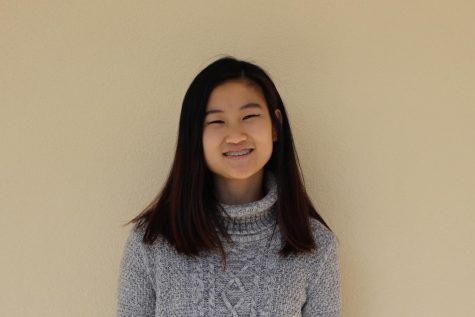Jia Seow’s Year, Written in Verse
When an old, familiar pop tune comes on the radio, the long-buried memories associated with it bubble to the surface instantly. Junior Jia Seow leveraged that effect in her new self-published poetry collection, “Return,” by diving back into playlists she created at certain points in her life to resurrect memories and channel them onto paper.
“The overarching themes of this book [include] nostalgia, love, unrequited love, returning back to places and people in the past,” Jia said. “[A lot of it is] thinking about how you can change the past and actually not being able to.”
Written over the course of an entire year, “Return” consists of 99 poems, organized by month from August to July. Jia used to write in a journal but ultimately decided on another creative approach to remembering each month so she could write poems of events that had occurred during that time. Jia would channel memories of each month into songs so she could easily revisit the playlist and write about the events that occurred that month.
“Specific things happened to me in those months, and I remember those months through songs,” Jia said. “Every month I create a monthly playlist [with] a specific set of songs… By the end of the month, I would just listen to them one more time, think about what happened and then move onto another set of songs.”
Jia’s inspiration to write the collection stemmed from reading poems other people wrote on Instagram.
“[There] was one point in my life where I was all about poems on Instagram everyday, and then I moved onto some poetry websites,” Jia said.
After looking through those poems, Jia decided to try her hand at writing as well. Through continual practice of poetry, she was able to discover her own writing style and also herself.
“I started writing based on sort of imitating what I read, but that didn’t really feel or sound like me,” Jia said. “I took a break from other people’s stuff and just concentrated on how I really write, [and] what do I really feel about something? Sometimes I had to turn to how other people thought about some things, and that taught me how to empathize with others as well as recognize my feelings about certain things.”
Although she now has a better sense of her writer’s voice than she did before, Jia is still on the journey of finding her own style.
“My personal poetic style ismore like I work through thepoem logically so sometimes I make an outline on what the poem’s about and other times I write it and hopes it turns out fine,” Jia said. “But I mostly write very clear lines that make sense. I’m still trying to [find my style].”
But Jia did not always have a passion for poetry. When she was introduced to poetry in middle school, she found the specific guidelines restricting. It was only during the freshman year poetry unit that Jia saw poetry in a different light.
“The eighth grade poetry unit for my school was: you write a poem about a color, the first line is the name of the color, the second line is where you would find the color,” Jia said. “I have a poem in [“Return”] called ‘Spitting Flames.’ It’s about… the transition between the eighth grade and ninth grade poetry units and how that really started my adventure in poetry. I didn’t like poetry at all [at first] because I thought it was a very constricted art form.”
Jia plans to donate 95 percent of the proceedings of her book to aid Syrian refugees by transferring the money to UNICEF through a specific program. The other 5 percent will go to her front-cover artist and friend, Vanessa Mark ‘16. Her decision to donate the majority of her earnings was partly influenced by her parents’ active donations to organizations and also by her genuine desire to help the Syrian refugees.
“My parents donated a lot of money to really good causes, and I felt that I should be a part of that
too,” Jia said. “When you’re a refugee you don’t have a home, and you feel stateless. I know that I’m a very lucky person to have some where to go back to and people to go to whenever I have problems… but these refugees don’t really have anywhere to go to.”
Publishing the book helped Jia realize her love for creative writing and her decision in planning to major in that as well.
“What inhibited me in the past was that I felt creative writing wasn’t going to be a very good outlet for me,” Jia said. “It wasn’t going to be a very good area of a career I could pursue so that’s why I didn’t consider it, but I started writing and it just turned into something that I could rely [on]. [Something] that I could just talk to every week, I could just write a poem every day or once a week or whenever I felt like it, you know? That would basically be like my therapist, so to speak.”
Although her school schedule and extracurriculars take up a lot of her time, Jia still finds time to write. Being in Silicon Valley has not made it easier either, as she has felt the pressure and focus of STEM overshadow the humanities.
“I feel like Silicon Valley appreciates STEM fields much more than it does… humanities in general,” Jia said. “I’m [not] against that, but sometimes I get the vibe that being… [an] artist in this society isn’t the right thing to do. I thought [this] before I started writing, but then I found a lot of people who felt the same way as I do right now and it’s really changed my view. If you really love something then you will do it, no matter what environment you grew up in.”




